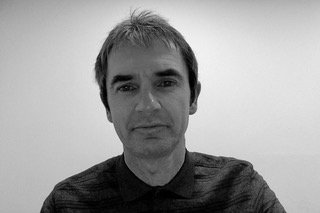I will start with a confession. I'm not very much keen on large social gatherings, it's the unpredictability which I construe as a trigger for anxiety and therefore I often, but not always, preempt things could go wrong, also know as 'catastrophising'.
So a coffee in Sebastian's, below Hove Town Hall, seemed in order before the Partnerships Directorate meeting in January. I sat - well, more perched - on the stools and it was as I cut into my fancy filo pastry things went downhill or more specifically the pastry did , as it went skidding from plate to floor. 'You need to use the five second rule!' a friendly voice beside said. 'It doesn't seem to work for me, I have OCD' I replied and he smiled knowingly and admitted, 'Aah I see, so do I actually.' And as it turned out we had more in common than a mental health condition.
So what's my point? It is that OCD is an often mis-appropriated term, largely because it varies in severity and visibility ranging from: mild symptoms of orderliness and hygiene through to life debilitating levels where a person's daily schedule and often those close to them is governed by rituals from dawn to dusk.
For every person that has developed an anxiety disorder such as obsessive compulsive disorder, without exception there will be a set of circumstances that triggered it, a 'breadcrumb trail' back to something traumatic. As research has improved, so has the categorisation and congruously the treatment available to individuals. I was clinically diagnosed at nineteen and was fortunate to have a mental health professional in my close family who travelled a considerable distance to spot I needed help. My condition involved 'checking' - the need to continually perform task correctly or repeat numerous times until 'just right' and 'contamination' the most widely known, which can escalate from obsessive hand-washing to avoiding close contact generally or hugging someone why does that sound familiar?
I was fortunate. I was referred to the only specialist centre in the UK and received cognitive behavioural therapy CBT from a leading psychotherapist, which was my motivation to contact and interview Dr Lynne Drummond National Lead for OCD at South West London & St.George's whose team treated me back then. You can watch this interview below.
There are other strands such as: 'internalising thoughts' where the sufferer is plagued with disturbing thoughts or images of perceived 'carelessness' in their actions and believe they have caused someone some harm, of course erroneously. Then there is 'counting and touching' - a relentless set of tasks attached to as many transaction as the mind can manage and more recently 'hoarding' which has gained more exposure. Hoarding has recently been added to the list of areas that therapists on welldoing.org can declare their specialism and interest in. However they all have a commonality - a strive for unachievable perfection somewhere within.
So, OCD during Covid-19: it's worth sparing a thought what impact public health messaging and 24-hour media coverage could have on someone. Imagine for instance, you have an exaggerated sense of responsibility about global health risks, to the point that you are repeatedly checking the news and this coexists with OCD. This has potential for a 'perfect storm', if you are used to washing your hands 12-15 times in one go when your condition is aggravated.
OCD isn't the only mental health condition affected, eating disorder referrals have spiked according to BEAT, the leading UK charity. However the condition can exist undetected, which can be due to a fear of shame or stigma, although people should counter that with the knowledge there is highly effective treatment out there, supported with medication where appropriate and as my anecdote endorses, there's quite a bit of it about!
So if you're worried about yourself or someone else...
Stuart Large is a freelance writer covering mental health and creative arts - you can follow him on twitter @boyaboutsound

